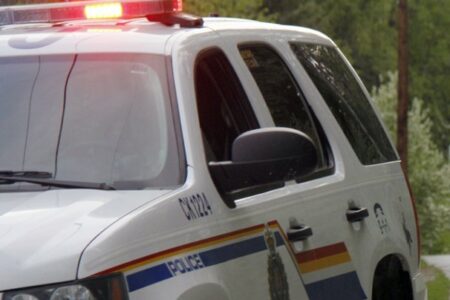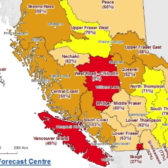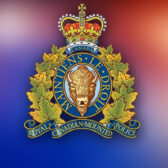Popular Bear Aware program get cash infusion from B.C. government
The provincial government is providing $225,000 over the next 12 months to bring the popular Bear Aware program to more communities around the province.
Bear Aware is an education program focused on reducing human-bear conflict in residential neighbourhoods through education, innovation and co-operation.
It is administered by the BC Conservation Foundation (BCCF) and has proven to be an effective tool to decrease conflicts. Last year, 22 communities participated in the program.
The most effective and natural way to prevent conflicts with bears in urban areas is to put away food attractants such as garbage, bird seed, compost and fruit. In communities where attractants are managed properly, there has been a decline in related human-bear conflicts and in the number of bears that have to be destroyed.
In Kamloops, over 23 bears were destroyed every year because of conflicts with people, but since 2004 that number has decreased to four bears per year on average. The city hired its first Bear Aware co-ordinator in 2002.
Bear Aware education is one criterion that must be met for a community to obtain “Bear Smart” status.
“Bear Smart” is a voluntary, preventative conservation measure that encourages communities, businesses and individuals to work together. It is based on a series of criteria that communities must meet to be designated as Bear Smart. The goal is to address the root causes of human-bear conflicts to reduce the risks to public safety and private property, as well as the number of bears that have to be destroyed each year.
Four communities are currently designated “Bear Smart”: Kamloops, Squamish, Lions Bay and Whistler. Over 20 other communities in B.C. are actively pursuing “Bear Smart” status.
The Conservation Officer Service (COS) is the primary responder to human-wildlife conflicts where there is a risk to public safety, conservation concerns or where significant property damage has occurred.
In 2011/12 the COS received approximately 37,500 calls regarding human-wildlife conflicts. Of those calls, approximately 23,800 involved human-bear conflicts. Over the past five years in B.C., an average of 600 black bears was destroyed each year, while 93 were relocated.
Recent amendments to the Wildlife Act give conservation officers the ability to issue tickets or court appearance notices to deal with people who repeatedly and negligently fail to secure attractants. These tools complement existing tools and are expected to reduce the number of bears that come into conflict with people.
Communities can apply for the Bear Aware program by visiting: www.bearaware.bc.ca


























